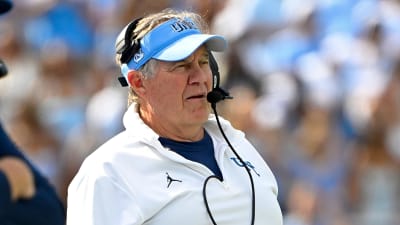
Overtime periods in NBA games often provide thrilling moments, where players showcase their skills under immense pressure. Since 1999, numerous players have delivered remarkable performances during overtime, leaving a significant mark on the league's history. Let's delve into each season and highlight the standout performers who have amassed the most points during overtime.
1999-00 Season: Latrell Sprewell - 29 Points
In the 1999-00 NBA season, Latrell Sprewell emerged as a pivotal figure in overtime scenarios, showcasing his knack for delivering under pressure. Throughout the season, Sprewell demonstrated his ability to seize crucial moments, tallying an impressive total of 29 points across six overtime games. Despite the New York Knicks maintaining a balanced record of 3 wins and 3 losses in these extended periods, Sprewell's individual performance shone brightly.
Beyond his overtime heroics, Sprewell displayed consistent excellence throughout the regular season. Across 82 games, he averaged 18.6 points, 4.3 rebounds, and 4.0 assists, cementing his status as a key contributor for the Knicks. His versatile skill set and ability to impact the game in multiple facets were instrumental in the team's success.
The Knicks enjoyed a solid campaign in the 1999-00 season, finishing with a commendable record of 50-32 and securing the 3rd seed in the Eastern Conference. Their journey faced a stern test in the postseason. Despite their regular-season accomplishments, they encountered a formidable opponent in the Eastern Conference Finals, where they squared off against the Indiana Pacers.
2000-01 Season: Steve Francis - 41 Points
Steve Francis emerged as a standout performer in overtime situations for the 2000-01 NBA season, showcasing his ability to thrive under pressure. Representing the Houston Rockets during this campaign, Francis not only displayed his scoring prowess but also exhibited his versatility as a playmaker and rebounder.
In addition to his remarkable overtime scoring, Francis maintained impressive averages of 19.9 points, 6.5 rebounds, and 6.5 assists per game throughout the regular season. His dynamic skill set and leadership qualities were instrumental in guiding the Rockets through the rigors of the NBA season.
While Francis's individual performance was stellar, the Rockets faced challenges as a team. His ability to excel in overtime situations undoubtedly provided invaluable contributions to the team's success, contributing to their overall performance during the 2000-01 season.
2001-02 Season: Kobe Bryant - 46 Points
Kobe Bryant's dominance in the 2001-02 NBA season transcended mere statistics, as he etched his name into the annals of basketball history with unparalleled performances, particularly in overtime situations. Across seven overtime contests, Bryant showcased his indomitable spirit, amassing an extraordinary total of 46 points.
But Bryant's impact extended far beyond overtime heroics. Throughout the season, he exhibited his prowess as one of the league's premier talents, averaging 25.2 points, 5.5 rebounds, and 5.5 assists per game. His remarkable consistency earned him a spot in his fourth All-Star Game, a testament to his enduring excellence.
Yet, Bryant's true greatness was perhaps most evident in the postseason, where he led the Los Angeles Lakers to their third NBA championship in four years. Despite finishing the regular season with a solid 58-24 record and securing the 3rd seed in the Western Conference, it was in the playoffs where Bryant truly shone.
The Lakers steamrolled through the competition, culminating in a dominant Finals performance against the New Jersey Nets, whom they defeated in a clean sweep, 4 games to 0, to clinch their fourteenth championship.
2002-03 Season: Kobe Bryant - 40 Points
Kobe Bryant's relentless determination and clutch performances continued to define the 2002-03 NBA season as he once again demonstrated his ability to shine in overtime situations. Across nine overtime games, Bryant showcased his scoring prowess by accumulating a remarkable total of 40 points.
Yet, Bryant's impact transcended his scoring feats. Throughout the regular season, he showcased his multifaceted skill set, averaging an impressive 30.0 points, 6.9 rebounds, and 5.9 assists per game. His stellar play earned him a selection to his fifth All-Star Game, further solidifying his status as one of the league's elite talents.
Despite Bryant's individual brilliance, the Los Angeles Lakers faced adversity as a team during the 2002-03 season. With a regular-season record of 50-32, they secured the 5th seed in the highly competitive Western Conference. Despite their best efforts, the Lakers fell short in the postseason, bowing out in the Western Conference Semifinals to the San Antonio Spurs in a hard-fought series, ultimately losing 4 games to 2.
2003-04 Season: Vince Carter - 34 Points
The 2003-04 NBA season witnessed Vince Carter's standout performances in overtime situations, where he showcased his ability to rise to the occasion when the game was on the line. Across ten overtime contests, Carter displayed his scoring prowess by accumulating a total of 34 points.
Despite his notable contributions in overtime, Carter's impact extended beyond these clutch moments. Throughout the regular season, he demonstrated versatility and skill, averaging 22.5 points, 4.8 rebounds, and 4.8 assists per game. These impressive numbers earned him a selection to his fifth All-Star Game, reaffirming his status as one of the league's premier talents.
Although Carter' showed great individual success, the Toronto Raptors faced struggles as a team during the 2003-04 season. With a regular-season record of 33-49, they found themselves outside of playoff contention. Despite their collective efforts, the Raptors were unable to secure a postseason berth.
2004-05 Season: Dwyane Wade - 49 Points
Dwyane Wade's electrifying performances in overtime situations defined the 2004-05 NBA season, showcasing his ability to take over games when it mattered most. Across eight overtime contests, Wade exhibited his scoring prowess with an impressive total of 49 points.
Yet, Wade's impact extended far beyond his scoring output. Throughout the regular season, he displayed his versatility and playmaking ability, averaging 24.1 points, 6.8 assists, and 5.2 rebounds per game. These stellar numbers earned him a well-deserved selection to his first All-Star Game, marking a significant milestone in his burgeoning career.
The Miami Heat enjoyed a successful regular season, finishing with an impressive record of 59-23 and securing the top seed in the Eastern Conference. Yet, their postseason journey faced a formidable challenge in the Eastern Conference Finals, where they squared off against the Detroit Pistons in a fiercely contested series. Despite their valiant efforts, the Heat fell short, losing the series in a thrilling seven-game battle.
2005-06 Season: Dirk Nowitzki - 44 Points
The 2005-06 NBA season bore witness to Dirk Nowitzki's transcendence in overtime situations, as he etched his name in the annals of basketball history with his remarkable performances. Across the season, Nowitzki displayed his ability to thrive under pressure, accumulating a staggering total of 44 points across seven overtime contests.
Beyond his overtime heroics, Nowitzki's impact reverberated throughout the regular season. Averaging 26.6 points, 9.0 rebounds, and 2.8 assists per game, he showcased his versatility and skill on the court. His stellar play earned him widespread recognition and admiration, solidifying his status as one of the league's premier talents.
The Dallas Mavericks enjoyed a successful campaign in the 2005-06 season, with Nowitzki leading the charge. Finishing with a commendable record, the Mavericks secured a spot in the playoffs, poised to make a deep postseason run.
2006-07 Season: Kobe Bryant - 70 Points
The 2006-07 NBA season was a testament to Kobe Bryant's sheer scoring prowess and clutch performances, epitomized by his unforgettable 70-point OT explosion in a single season. Across ten overtime battles, Bryant continued to shine, amassing a total of 70 points in these crucial moments, showcasing his unparalleled ability to deliver when the game hung in the balance.
But Bryant's contributions extended far beyond his scoring feats. Throughout the regular season, he displayed remarkable consistency and versatility, averaging an impressive 31.6 points, 5.7 rebounds, and 5.4 assists per game. Such stellar numbers earned him a well-deserved selection to his ninth All-Star Game, a testament to his enduring excellence and impact on the league.
Despite Bryant's individual brilliance, the Los Angeles Lakers faced significant challenges as a team during the 2006-07 season. With a regular-season record of 42-40, they secured the 7th seed in the fiercely competitive Western Conference. Their postseason was cut short in the Western Conference First Round, where they fell to the Phoenix Suns in a five-game series.
2007-08 Season: LeBron James - 43 Points
In the 2007-08 NBA season, LeBron James continued to assert his dominance, particularly in overtime situations, where he showcased his ability to elevate his game when it mattered most. Across five overtime contests, James amassed an impressive total of 43 points, contributing significantly to his team's success.
Beyond his overtime heroics, James displayed remarkable all-around play throughout the regular season, averaging a staggering 30.0 points, 7.9 rebounds, and 7.2 assists per game. Such impressive numbers solidified his status as one of the league's premier talents and earned him a selection to his fourth All-Star Game.
Despite James' individual brilliance, the Cleveland Cavaliers faced challenges as a team during the 2007-08 season. With a regular-season record of 45-37, they secured the 4th seed in the Eastern Conference. Yet, their postseason ended in disappointment, as they fell to the Boston Celtics in a grueling seven-game series in the Eastern Conference Semifinals.
2008-09 Season: Dwyane Wade - 49 Points
Dwyane Wade's impact on the 2008-09 NBA season reverberated with his remarkable ability to excel in high-pressure situations, particularly during overtime. Across six overtime contests, Wade emerged as a beacon of resilience, amassing an impressive total of 49 points while guiding his team to an exceptional 5-1 record in these extended periods.
But Wade's influence transcended mere scoring. Throughout the regular season, he showcased his versatility and leadership, averaging 30.2 points, 7.5 assists, and 5.0 rebounds per game. These stellar numbers not only reaffirmed his status as one of the league's premier talents but also earned him a fifth selection to the All-Star Game.
2009-10 Season: Dirk Nowitzki - 37 Points
The 2009-10 NBA season saw Dirk Nowitzki once again demonstrate his ability to perform under pressure, particularly in overtime situations. Across six overtime games, Nowitzki amassed a total of 37 points, playing a pivotal role in securing a stellar 5-1 record for his team in these crucial moments.
But Nowitzki's impact extended well beyond his scoring output. Throughout the regular season, he showcased his versatility and leadership on the court, averaging 25.0 points, 7.7 rebounds, and 2.7 assists per game. Such consistent excellence earned him a ninth selection to the All-Star Game, further solidifying his status as one of the league's premier talents.
2010-11 Season: Russell Westbrook - 45 Points
Russell Westbrook's impact reverberated throughout the 2010-11 NBA season, particularly in overtime situations where he showcased his ability to thrive under pressure. Across nine overtime games, Westbrook emerged as a beacon of resilience, accumulating an impressive total of 45 points while guiding his team to a stellar 8-1 record in these crucial moments.
Yet, Westbrook's influence extended beyond mere scoring. Throughout the regular season, he showcased his dynamic skill set, averaging 21.9 points, 8.2 assists, and 4.6 rebounds per game. Such all-around excellence not only earned him a well-deserved selection to his first All-Star Game but also solidified his status as one of the league's premier talents.
With Westbrook's individual brilliance, his team faced a formidable challenge in reaching the NBA Finals against the Miami Heat, ultimately falling short in a hard-fought series, 4 games to 1. Yet, Westbrook's exceptional performances in overtime and throughout the season served as a testament to his unwavering determination and undeniable impact on the game of basketball.
2011-12 Season: Joe Johnson - 43 Points
In the 2011-12 NBA season, Joe Johnson showcased his clutch abilities, particularly in overtime, while playing for the Atlanta Hawks. Across eight overtime games, Johnson demonstrated his scoring prowess, amassing an impressive total of 43 points and guiding the Hawks to a commendable 5-3 record in these extended periods.
Despite posting more modest regular-season statistics, averaging 18.8 points, 3.9 assists, and 3.7 rebounds in 60 games, Johnson's consistent contributions earned him a well-deserved selection to his sixth All-Star Game. His ability to perform under pressure was evident throughout the season.
2012-13 Season: Paul Pierce - 43 Points
During the 2012-13 NBA season, Paul Pierce demonstrated his clutch abilities, particularly in overtime, while playing for the Boston Celtics. Across eleven overtime games, Pierce tallied a total of 43 points, contributing significantly to the team's success with a solid 7-4 record in these high-pressure situations.
Although Pierce's regular-season statistics were relatively modest, averaging 18.6 points, 6.3 rebounds, and 4.8 assists in 77 games, his leadership and experience were invaluable for the Celtics throughout the season. His ability to step up when the game was on the line exemplified his status as a seasoned veteran and a reliable performer in crucial moments.
2013-14 Season: Kyrie Irving - 55 Points
Kyrie Irving illuminated the 2013-14 NBA season with his dazzling performances, particularly when the game clock ticked into overtime. Across seven nail-biting overtime matchups, Irving's scoring prowess shone bright, accumulating an impressive total of 55 points. His clutch plays were instrumental in steering his team to a commendable 4-3 record in these high-pressure situations.
While Irving's regular-season averages of 20.8 points, 6.1 assists, and 3.6 rebounds in 71 games may appear modest on paper, his impact on the court was anything but. His selection to his second All-Star Game underscored his status as one of the league's premier talents and highlighted his ability to rise to the occasion when the stakes were highest.
2014-15 Season: John Wall - 43 Points
In the 2014-15 NBA season, John Wall emerged as a beacon of resilience and leadership for the Washington Wizards, particularly in overtime situations. Across seven intense overtime battles, Wall's dynamic playmaking and scoring prowess were on full display as he tallied a total of 43 points. His clutch performances were pivotal in securing his team a respectable 4-3 record in these critical moments.
While Wall's regular-season averages of 17.6 points, 10.0 assists, and 4.6 rebounds in 79 games may not immediately grab headlines, his impact on the court was undeniable. His selection to his second All-Star Game reaffirmed his status as one of the league's premier point guards and highlighted his ability to elevate his game when it mattered most.
2015-16 Season: Deron Williams - 44 Points
Deron Williams etched his name into the annals of the 2015-16 NBA season with his clutch performances, particularly when the game clock ticked into overtime while playing for the Dallas Mavericks. Across eleven overtime contests, Williams showcased his scoring prowess, tallying an impressive total of 44 points. His contributions played a pivotal role in guiding the Mavericks to a commendable 7-4 record in these high-pressure moments.
Despite posting relatively modest regular-season statistics of 14.1 points, 5.8 assists, and 2.9 rebounds in 65 games, Williams' impact was undeniable. His ability to step up when the game was on the line epitomized his veteran leadership and resilience on the court, proving invaluable for the Mavericks.
2016-17 Season: Kyrie Irving - 40 Points
Kyrie Irving continued to solidify his reputation as a clutch performer during the 2016-17 NBA season, particularly in overtime situations, while playing for the Cleveland Cavaliers. Across six overtime games, Irving demonstrated his scoring prowess, accumulating a total of 40 points. His contributions were instrumental in helping the Cavaliers to a respectable 3-3 record in these intense contests.
With impressive regular-season averages of 25.2 points, 5.8 assists, and 3.2 rebounds in 72 games, Irving's impact was felt across the league. His selection to his fourth All-Star Game reaffirmed his status as one of the premier guards in the NBA. Despite the Cavaliers falling short in the NBA Finals against the Golden State Warriors, Irving's ability to rise to the occasion remained unquestionable.
In the 2016-17 NBA playoffs, Kyrie Irving played a pivotal role for the Cleveland Cavaliers as they marched to the NBA Finals. He showcased his scoring ability and clutch performances throughout the postseason, averaging 25.9 points, 5.3 assists, and 2.7 rebounds per game. Despite their efforts, the Cavaliers ultimately lost to the Golden State Warriors in the Finals, falling short of defending their championship title.
2017-18 Season: Jrue Holiday - 35 Points
In the 2017-18 NBA season, Jrue Holiday showcased his ability to shine in clutch moments, particularly in overtime, while representing the New Orleans Pelicans. Across nine overtime contests, Holiday's scoring prowess was evident as he tallied a total of 35 points, leading the Pelicans to an impressive 7-2 record in these crucial periods.
Despite his solid regular-season averages of 19.0 points, 6.0 assists, and 4.5 rebounds in 81 games, Holiday's impact extended beyond statistics. His ability to elevate his game when it mattered most provided invaluable leadership for the Pelicans throughout the season.
2018-19 Season: D’Angelo Russell - 47 Points
D’Angelo Russell made significant strides during the 2018-19 NBA season, particularly in overtime situations, while playing for the Brooklyn Nets. Despite appearing in only four overtime games, Russell's impact was undeniable as he showcased an incredible average of 11.75 points per game, totaling 47 points. His clutch performances played a pivotal role in helping the Nets secure a respectable 2-2 record in overtime contests.
With impressive regular-season averages of 21.1 points and 7.0 assists, Russell earned his first All-Star selection, solidifying his status as one of the league's emerging stars. Although the Nets faced a tough loss in the Eastern Conference First Round against the Philadelphia 76ers, Russell's remarkable season highlighted his potential as a future star in the NBA.
2019-20 Season: Trae Young - 39 Points
In the 2019-20 NBA season, Trae Young emerged as a force to be reckoned with in overtime situations while representing the Atlanta Hawks. Across six overtime games, Young displayed his scoring prowess, accumulating a total of 39 points. However, despite his individual brilliance, the Hawks managed a 2-4 record in these extended periods.
Despite the team's struggles in overtime, Young's ability to consistently contribute on the offensive end showcased his talent and potential as a dynamic playmaker in the league. As the season progressed, Young's performances in crunch time became a focal point for the Hawks and a source of excitement for NBA fans worldwide.
2020-21 Season: Nikola Jokic - 42 Points
The 2020-21 NBA season was a standout year for Nikola Jokic of the Denver Nuggets, particularly in overtime situations. Across six overtime games, Jokic demonstrated his scoring prowess, totaling an impressive 42 points. His contributions were instrumental in guiding the Nuggets to a solid 4-2 record in these crucial moments.
Jokic's stellar performances extended beyond overtime, as evidenced by his impressive regular-season averages of 26.4 points, 10.8 rebounds, and 8.3 assists per game. These remarkable numbers earned him the prestigious MVP award, along with selections to the NBA 1st Team and the All-Star Game.
Despite the individual accolades, the Nuggets finished the season with a 47-25 record, securing the 3rd seed in the Western Conference. However, their playoff run was cut short in the NBA Western Conference Semifinals, where they suffered a 0-4 series defeat against the Phoenix Suns.
2021-22 Season: Nikola Jokic - 35 Points
In the 2021-22 NBA season, Nikola Jokic once again showcased his prowess in overtime situations, leading the Denver Nuggets with his stellar performances. Across four overtime games, Jokic amassed a total of 35 points, contributing significantly to the team's impressive 3-1 record in these intense contests.
Jokic's dominance extended beyond just overtime, as he posted remarkable regular-season averages of 27.1 points, 13.8 rebounds, and 7.9 assists per game. His outstanding play earned him back-to-back MVP honors, along with selections to the NBA 1st Team and the All-Star Game.
Despite securing the 6th seed in the Western Conference with a 48-34 record, Denver’s postseason journey was cut short in the NBA Western Conference First Round, where they fell 1-4 to the Golden State Warriors.
2022-23 Season: DeMar DeRozan - 45 Points
The 2022-23 NBA season showcased DeMar DeRozan's prowess in clutch moments, particularly in overtime scenarios, while donning the jersey of the Chicago Bulls. Across seven overtime battles, DeRozan displayed his scoring prowess, totaling an impressive 45 points. Despite the Bulls managing a 3-4 record in these extended periods, DeRozan's contributions were undeniable.
Amidst his remarkable overtime performances, DeRozan's regular-season statistics of 24.5 points, 4.6 rebounds, and 5.1 assists per game solidified his status as a bonafide star in the league. His inclusion in the All-Star game was a testament to his impact on the court throughout the season.
DeRozan's exceptional performances in crunch time established him as a key player for the Bulls and earned him recognition as the 3rd place finisher in the inaugural Clutch Player of The Year award in the NBA, further cementing his legacy in the league's history.
More must-reads:
- Concerning report emerges about LeBron James' health
- Latest Paul George injury intel is bad news for 76ers
- The 'Team USA men's basketball coaches' quiz
Breaking News
Trending News
Customize Your Newsletter
 +
+
Get the latest news and rumors, customized to your favorite sports and teams. Emailed daily. Always free!








